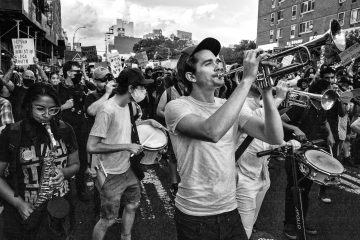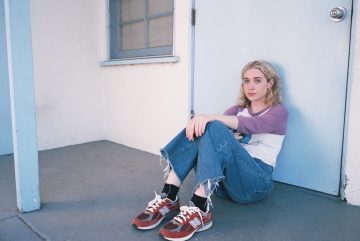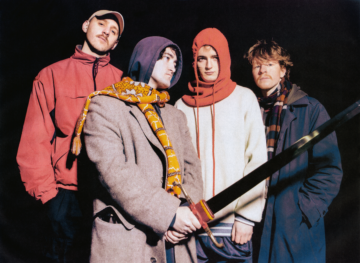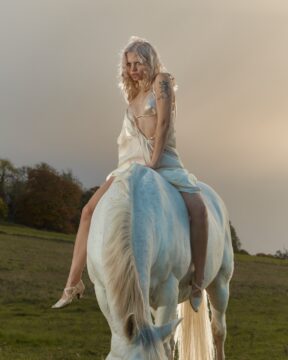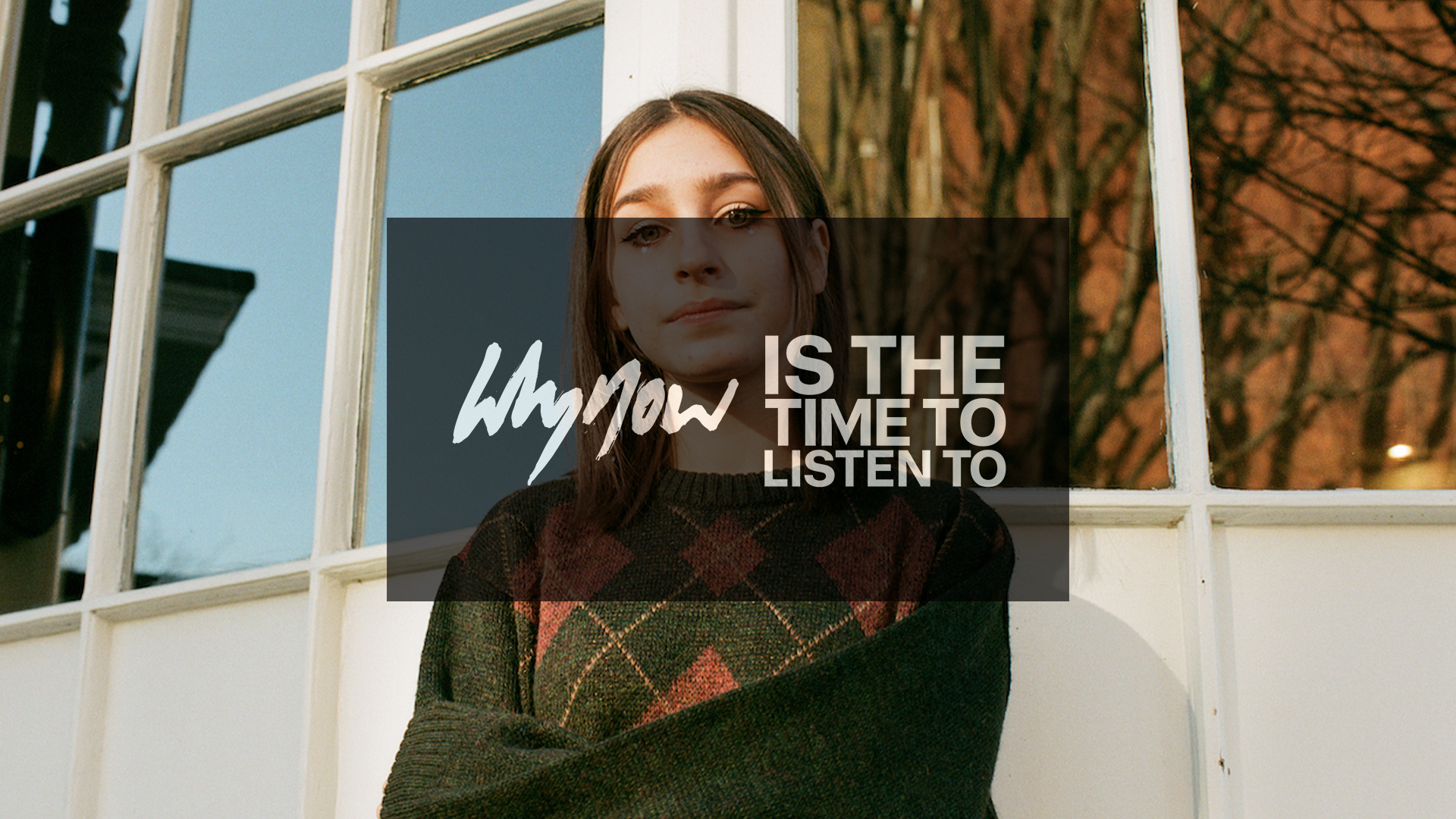
Lexie Carroll’s brand-new EP ‘it’s difficult to talk’ is out now. A soft, thoughtful body of work that breezes between indie-rock, bedroom pop and folk, it embodies the London musician’s use of songwriting as a means to untangle and express all the things she doesn’t always get to say to people in person.
Consisting of new single ‘Central Line’ – which likewise explores the wider theme of all that goes unsaid between people on the underground – it’s the singer’s third EP in three years. With an ever-impressive online fanbase, the Seven Four Seven Six signee is having a very steady rise indeed, with BBC Radio Introducing and Spotify shoutouts made all the more remarkable by the fact she’s just 18-years-old.
As part of our series on emerging artists, we speak to Lexie about her new EP, supporting her labelmate Matilda Mann and how her mum analyses her Spotify streams more than anyone else.
Lexie, your third EP, it’s difficult to talk, is out now. How are you feeling about its release?
I’m really excited. I think this EP feels like the most me EP I could be making right now. I’m still learning and developing because I’m quite young, but the last EPs I made feel very like they come from very different people, because I was growing up. I’ll probably feel that way about this EP down the line, but it feels like a really good time capsule of right now. And I’m very excited, it feels a lot more refined.
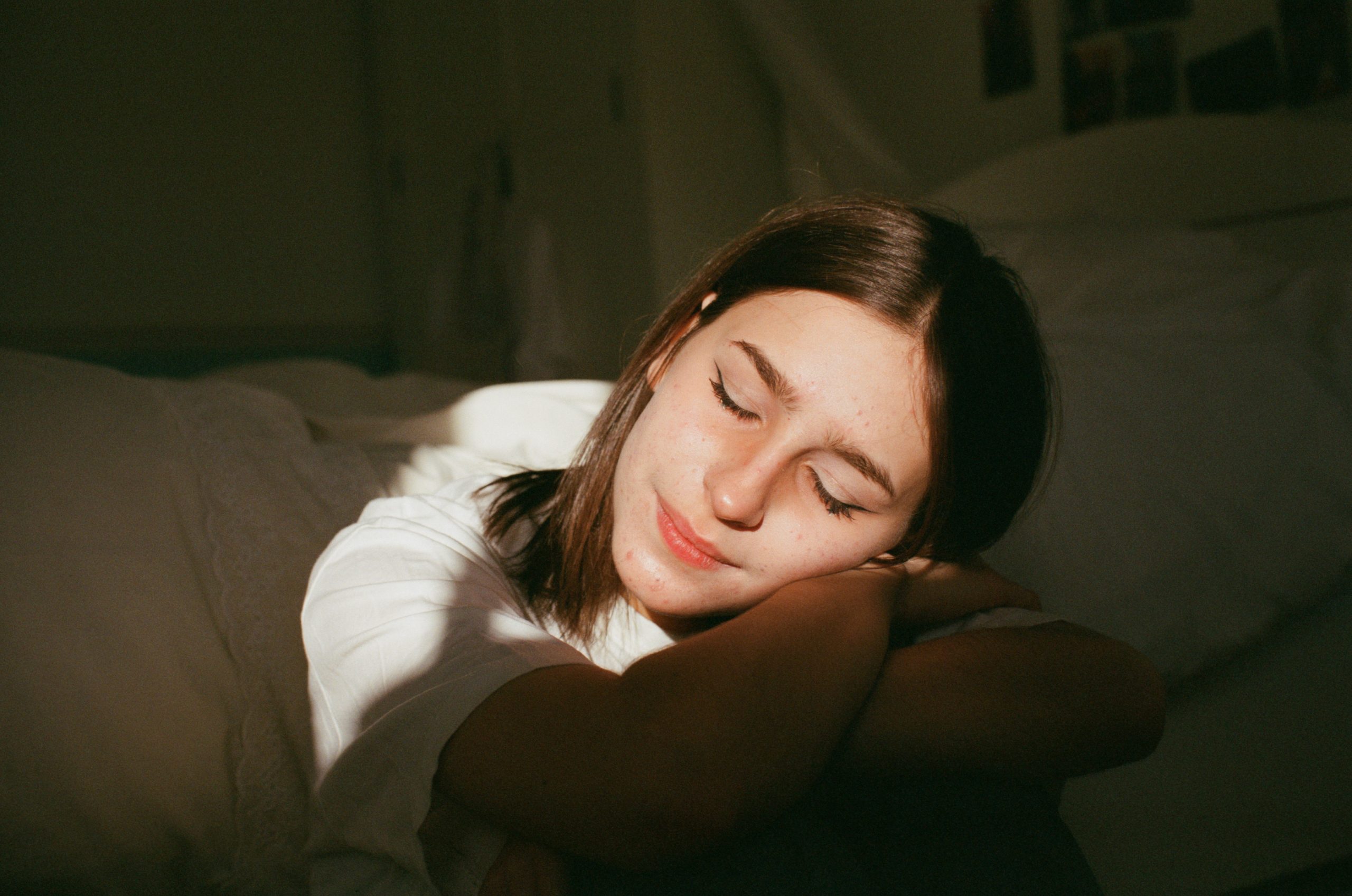
Photo: Matilda Hill-Jenkins
How does this EP compare to your first release?
I feel a lot more nervous now. When I put out the first EP, it was literally my mum and me for the streams; now there are more people listening, that feels a bit more daunting. The prouder I am, the more nervous I get about it because as soon as it comes out it gets attached to all the reaction.
It’s titled, it’s difficult to talk. Why?
That’s a line in my song ‘Violet’, but also a lot of the songs on this EP have the theme of not talking. I’m not great at chatting to people. Whether it’s small-talk or proper conversations, it’s quite daunting to me. I like writing my stuff into songs because that feels easier, so it felt like [the title] summed up the themes of the EP quite well, and the greater theme of why I write songs because I find it a helpful medium for me to get out what I want to say.
Have you always found that writing songs is an easier means of expression for you?
I’ve been writing for a long time. But I would write songs when I was little and it would be a love song, for instance, but I’d never had anything close to that, and I’d write songs about things I hadn’t really experienced. But I still think the feelings – even if what I’m writing about isn’t completely autobiographical – are always genuine. And how I get those out is through writing these stories and expressing those feelings into lyrics.
I read a phrase you previously used where you said “writing is a bit like knitting”. What did you mean by that?
I think I was saying I have a lot of feelings and a lot of stuff going on in my brain; when I write about it, it feels like I can turn that into something that feels a bit more manageable – these jumble of emotions that can be laid out. A lot of the time when I’m writing songs, I don’t really set out to write about a specific event, but as soon as I start writing the verse and chorus, I realise how I’m feeling, and writing it out helps me see that.
When did you realise you wanted to be a songwriter?
It was definitely gradual. I’ve never thought I’m going to be an artist, because that feels like a big, lofty dream. But I started writing when I was seven or eight, and then I was a big fan of all the music going on YouTube like Dodie and Cavetown, and thought I wanted to do that. So I posted my stuff on there, and then everything’s just been a very natural step from there.
It’s happening naturally but you’re still achieving key milestones, including recently signing to the label Seven Four Seven Six (Matilda Mann, Matt Maltese). What did that do for your confidence as an artist?
That was definitely a stamp of thinking maybe this isn’t just my little, insular thing; maybe this can be something else. Also, I’m a big fan of a lot of the people who’ve come through Seven Four Seven Six so it’s been really fun.
Your track ‘Central Line’ is the one song that hasn’t been released as a single prior to the EP’s full release. What’s it about?
I was on the tube with somebody and was thinking about how it was clear they had stuff they wanted to talk about but – like with the EP name – we were just talking about the tube delays and stuff. On a bigger level, I feel like that’s a very common thing in London: we all just get on with stuff. There’s nothing sadder than on the London commute when everyone’s just in the zone of getting to their places, never noticing to stop or see if anyone’s doing alright. So on a bigger level that’s what ‘Central Line’ is about.
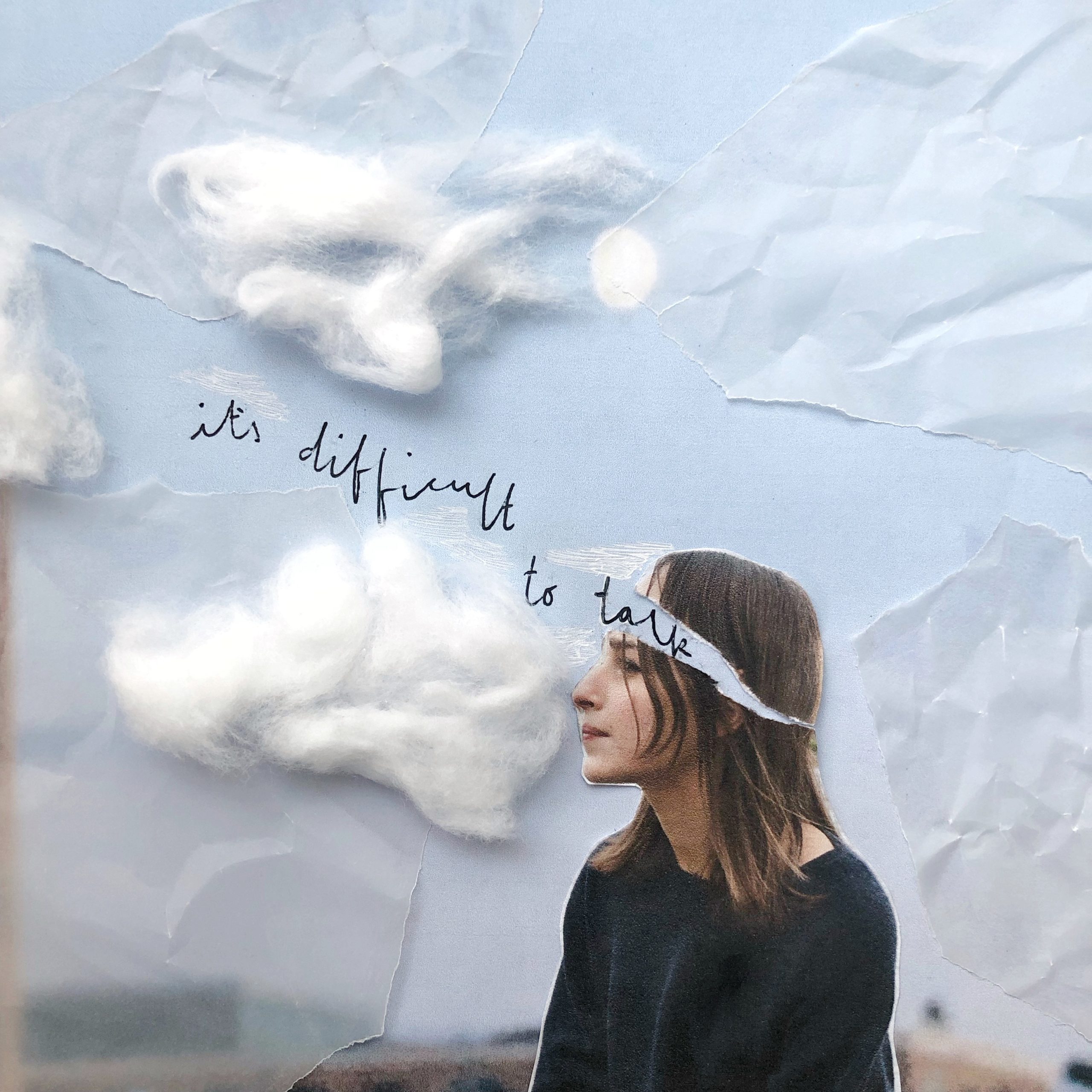
You’re very skilled at picture-painting with your lyrics. How perfectionist do you get with your songwriting?
I don’t often revisit lyrics and change stuff, really, unless I take it to someone else and then that’s quite useful for me to get their perspective. But if it was just me doing it, I would probably just leave the songs as they are. I tend not to think about it too much, it just seems to be what comes out at the time and then that’s how I leave it, really.
There’s a line in your track ‘annual birthday cry’ saying “I don’t wanna watch / My mum getting older”. Why does that worry you?
I think that’s a big fear: the people that you love getting older and becoming less able to do what they want. The aging process is the cruelest thing, I don’t understand why we’re made that way. I’m very close with my mum and the idea that she’s going to become less of herself is sad to me.
You said on the first EP, it was just you and her racking-up all the streams. Is she your biggest fan?
Absolutely. I couldn’t do anything without her. She’s the one who takes me to all the shows and is always supporting me. Whatever I would want to do, she’ll be in my corner. She’s a legend of a mother. She’s hilarious because she’ll analyse my Spotify statistics way more than I would. She’s very proud I think – I hope.
She’s become a self-made marketing guru for you… How do you assess where you’re currently at as a performer and with your set?
Sometimes I feel very awkward on stage. I love when I’m singing, and then as soon as I stop and change guitar or talk or something, I freak out. But it gets easier, and it especially helps when the audience has the best energy – I definitely feed off other people’s response. I’m starting to do songs where I don’t play guitar and I’m trying to walk around the stage… I don’t think I’m built for that type of thing, but it’ll get easier, and I’ll be more comfortable. It’s fun, though, just to get out of my comfort zone.
Well it’s clearly something you’re persevering with. What’s the end-goal you’re striving for as an artist?
That’s a big question. I think my main thing is I really want to have a community of people who really like what I’m making. I’d love to just be able to play my own shows and have people in the audience who are there for me. That’s already happening, but that’s the big thing for me – to play a show and have people singing back to you.
What’s that like when you have those moments?
It’s crazy. I have a song called ‘the sky looked nice today’, which is an old one. I wrote it quite a long time before I even released it, so it feels very old to me, and I was in a very different position when I wrote it. People sing the lyrics of that back to me and I think back to that child singing it in her bedroom, who would think ‘What the hell? How do people know these lyrics?’
View this post on Instagram
Speaking of pinch-me moments, as well as playing The Great Escape soon, you’ll also be supporting your labelmate Matilda Mann at The Jazz Café later this month. How do you feel about that?
I’m so excited about that. I’m such a big fan of Matilda. I don’t have many people where I listened to their stuff before they blew up, I’m normally quite late to people. But I was listening to all her early stuff and thought she’s just crazy good. The first time I met her was when I was playing a Sofar Sounds gig, and she was watching in the audience. I went up to play and saw her sitting there and it completely threw me. So it feels very cool to be supporting her.
Well now you’re labelmates, it’s come full circle. And what’s next for you? When’s the album?
I would love to make an album. When we were talking about ambitions, I hope to have made a couple of albums in three, five years because I think making a proper, full body of work would be really cool after making a few EPs. I’m making another EP at the moment, but then hopefully I might make an album. I don’t know when you get to progress to the big album stage but hopefully I will. That’s the dream.
Lexie Carroll’s new EP ‘it’s difficult to talk’ is out now via Seven Four Seven Six.
Lexie will be supporting Matilda Mann at Jazz Cafe on Thursday 18 May, see here for tickets.

